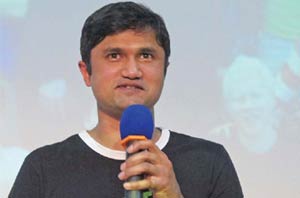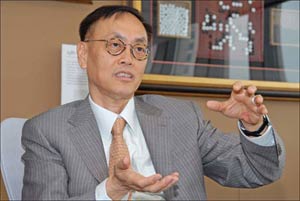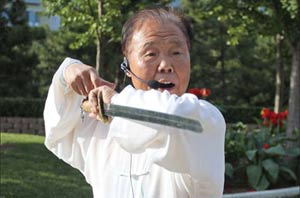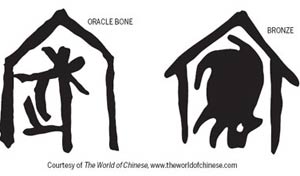Book examines how CPC works
Updated: 2011-10-14 08:17
By Fu Jing (China Daily)
|
|||||||||
FRANKFURT, Germany - The English version of Why and How the CPC Works in China, a book looking at the secrets behind the Communist Party of China's (CPC) success in the nine decades since its birth, was launched on Wednesday afternoon at the world's biggest book fair.
Written by five authors and edited by Professor Xie Chuntao of the Party School of the Central Committee of the CPC, the book aims to provide a clear and concrete insight into the history and the workings of the CPC.
"The book is presented in a vivid way, telling stories based on fact. It also focuses on including as many comments from foreigners as possible, making the book accessible to Chinese and foreign audiences alike," said Xie.
During an interview with China Daily, Xie said he is looking forward to continually updating the 200-page book as more and more questions are asked.
The book, he said, is a tool to enrich people's knowledge about China. "This includes foreign politicians, who may better understand their Chinese counterparts as a result," said Xie.
Another important point is that the book is based on questions asked by foreigners. Though it has just been officially launched, 2,000 copies have already been sold in the United Kingdom.
The book also touches on the mistakes the CPC has made and challenges it faces such as corruption.
Book launches such as this help contribute to the already popular presence of China at the Frankfurt Buchmesse, especially since it was the honorary country in 2009.
Claudia Kaiser, vice-president of the Frankfurt Buchmesse, said that this book is an important example of what China brings to the book fair every year.
Huang Yongjun, president of New Classic Press (UK), who is responsible for publishing Why and How the CPC Works in China in UK, first became interested in the book at the London Book Fair, and as a result acquired the rights from China's New World Press.
Although the topics discussed in the book have been discussed elsewhere, he said that this book is the first to do so clearly and concretely, making it appealing to a Western audience.
Huang said he hopes that the book will also help foreign politicians in their dealings with China.
"In order to deal with China, you have to understand the CPC, and in order to understand the CPC, you have to read this book," said Huang, adding that the Chinese ambassador to the UK had already presented Prime Minister David Cameron with a copy.
The book may also go a long way to help broaden peoples' perceptions of China, said Greg Jones, an exhibitor with a Chinese publishing company at the Frankfurt Buchmesse.
There are still many misconceptions about China that this book aims to overcome. An important point is that the book openly discusses the past mistakes of the CPC, including the issue of corruption. "This is a big step forward," said Jones.
Gerhard Friedemann, who has worked in China in the energy field, agreed with this.
"The media still often make the mistake of writing stories that are not based enough on fact," said Friedemann, adding that it is necessary to remember how far China has come in a very short space of time.
Eveline Filon contributed to this story.










